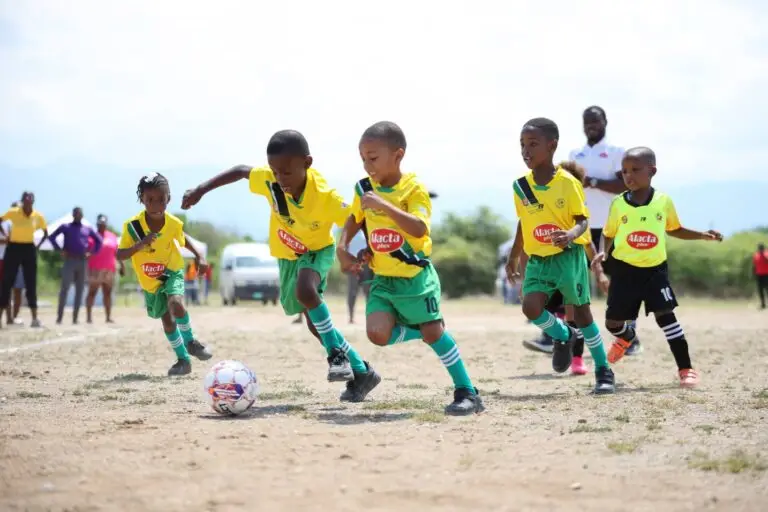PORTMORE, St Catherine — On any given Friday this month, the Dunbeholden field resembles a carnival of colour: pint-sized jerseys, oversized shin guards, and parents wielding phones like paparazzi. The spectacle is the Alacta Little League, an early-childhood football programme now in its sophomore season—and it’s rewriting the playbook on youth development in Jamaica.
A festival of firsts
- 30-plus schools represented. From Early Bloomers Academy to Judz Kidz Play, more than 400 children aged three to six suit up each week.
- Zero experience required. Many recruits had never kicked a ball before March; by May 31—the opening whistle—every child could dribble, pass, and celebrate with choreographed dances.
- Whole-family buy-in. Sidelines double as wellness fairs, with Alacta-branded hydration tents, nutrition kiosks, and parent-child “Sip & Paint” corners that transform downtime into bonding time.
Beyond the scoreboard
Roxanne Brown, senior brand manager for Alacta, sees the project as equal parts sports clinic and brain gym. “Motor coordination, social skills, self-discipline—football bundles them into one irresistible package,” she noted. “When we talk about cognitive nutrition, we’re not just referring to our growing-up milk formula; we’re talking about experiences that wire the brain for confidence.”
Tournament chair Andrea Hanson echoes that sentiment but adds a competitive twist. “Portmore has always supplied talent to Jamaica’s football pyramid. Starting at the infant level lets us spot promise early and keep kids on track academically and athletically.”
Early highlights
- Gregory Park Basic 10, Silverstone Basic 0: A masterclass in one-touch passing that had coaches praising “Barcelona energy—just shorter legs.”
- Naggo Head vs. Bridgeport Infant, 0-0: A defensive stalemate that drew the weekend’s loudest cheers; goalkeepers half the height of the posts produced full-stretch saves.
- Parent turnout up 60 per cent over year one, according to organisers—a figure credited to social-media livestreams and word of mouth.
What’s next
The stakes rise on 21 June when four unbeaten teams collide in the semi-finals; the championship kicks off a week later on 28 June. Regardless of the final scoreline, organisers say every participant will walk away with medals, new friendships, and a head start on life skills most adults still covet.
Brown’s closing remark captures the league’s real victory: “If a five-year-old can learn to trust a teammate and hydrate instead of grabbing soda, imagine what that habit looks like in ten years. That’s the win we’re chasing.”






